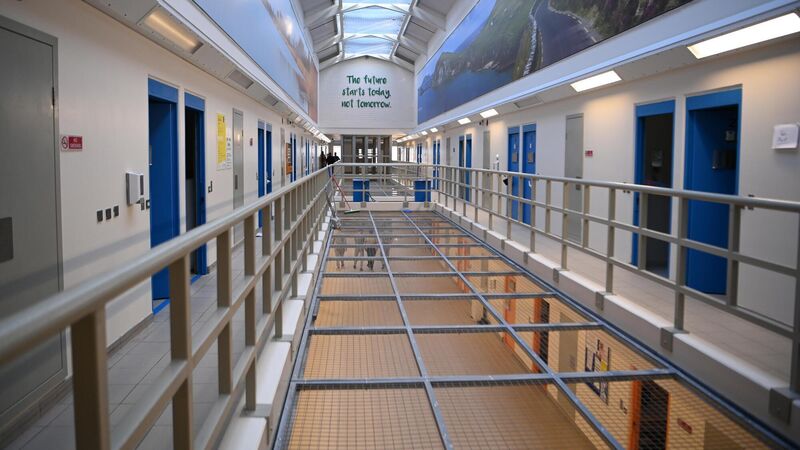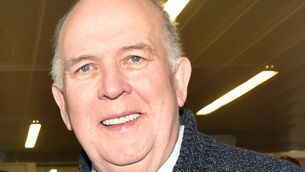Only eight sex offenders taking part in rehabilitative treatment programme

In a recent Dáil debate, it was revealed that according to the Irish Prison Service, offenders who avail of treatment are three and a half times less likely to reoffend. Picture: Dan Linehan.
The Irish Prison Service (IPS) has confirmed there were 706 sexual offenders serving sentences in Irish prisons at the end of June, an increase of 132 people on the same month of last year, with only eight participating in the services’ rehabilitative treatment programme.
Through documents revealed to Ireland South MEP Cynthia Ní Mhurchú, following a request made under the Freedom of Information Act (FOI), the service confirmed that only eight inmates serving time for a sexual offence are currently participating in the Building Better Lives (BBL) programme. This is only half of the capacity the flagship treatment programme can take.
According to figures obtained from the FOI request, 175 sexual offenders were released back into communities across the country last year, many of whom had no rehabilitation treatment.
Further figures obtained by The Echo from the IPS, showed that just 11 prisoners completed the BBL programme in 2023, with only seven completing it the year previous.
Flawed
Ms Ní Mhurchú, a barrister, has described the figures as worrying and said there is something “fundamentally flawed” with the manner in which we deal with sex offenders in Ireland.
In a recent Dáil debate, it was revealed that according to the IPS, offenders who avail of treatment are three and a half times less likely to reoffend.
Speaking to The Echo, a spokesperson for the IPS said that the BBL programme has been delivered as a treatment programme for the last 15 years and is based on Canada’s Rockwood model of treatment.
It is provided over two stages, a shorter motivational group Exploring Better Lives (EBL) and a longer-term, more intensive treatment group, Practicing Better Lives (PBL).
The spokesperson said that while the programme is available in prisons nationwide, it is currently being delivered in Arbour Hill Prison, with typically eight participants attending each group at one time, 16 participants in total.
“The primary reason for low participation rates is the strict inclusion and exclusion criteria for participation, including the requirement for stability of mental health and personality, sufficient sentence length, being assessed as moderate to high risk of reoffending, and capacity to engage in group programmes,” said the spokesperson.
“Those who deny their offence are also excluded. Those appealing their offence often deny all or part of their offending also, therefore denial as an exclusion criteria constitutes a significant percentage of the population.
“As many people convicted of sexual violence do not meet criteria for BBL because of particularly complex presentations, there are various other pillars of intervention and management available, depending on the person’s strengths, needs, and risks.
“A significant number of those who are released who do not participate in BBL are managed in this way.”
Incentives
Ms Ní Mhurchú said: “If we know that treating sexual offenders works, then why are we not focusing on incentives to take part and disincentives for those who choose to sit it out?
“There are certain things we can do immediately. For instance, applications for parole for sexual offenders should not be granted if the offender has not availed of treatment.”
Ms Ní Mhurchú has since called on the minister for justice to include a raft of incentives to ensure that participation rates amongst sexual offenders in Ireland in the BBL programme increases.
“It costs the State €85,000 annually to keep one sexual offender in prison,” she added.
“We can do better when it comes to participation in rehabilitative programmes to ensure we reduce reoffending and that the 175 sexual offenders we are releasing into the community annually have had some level of treatment.”







 App?
App?


